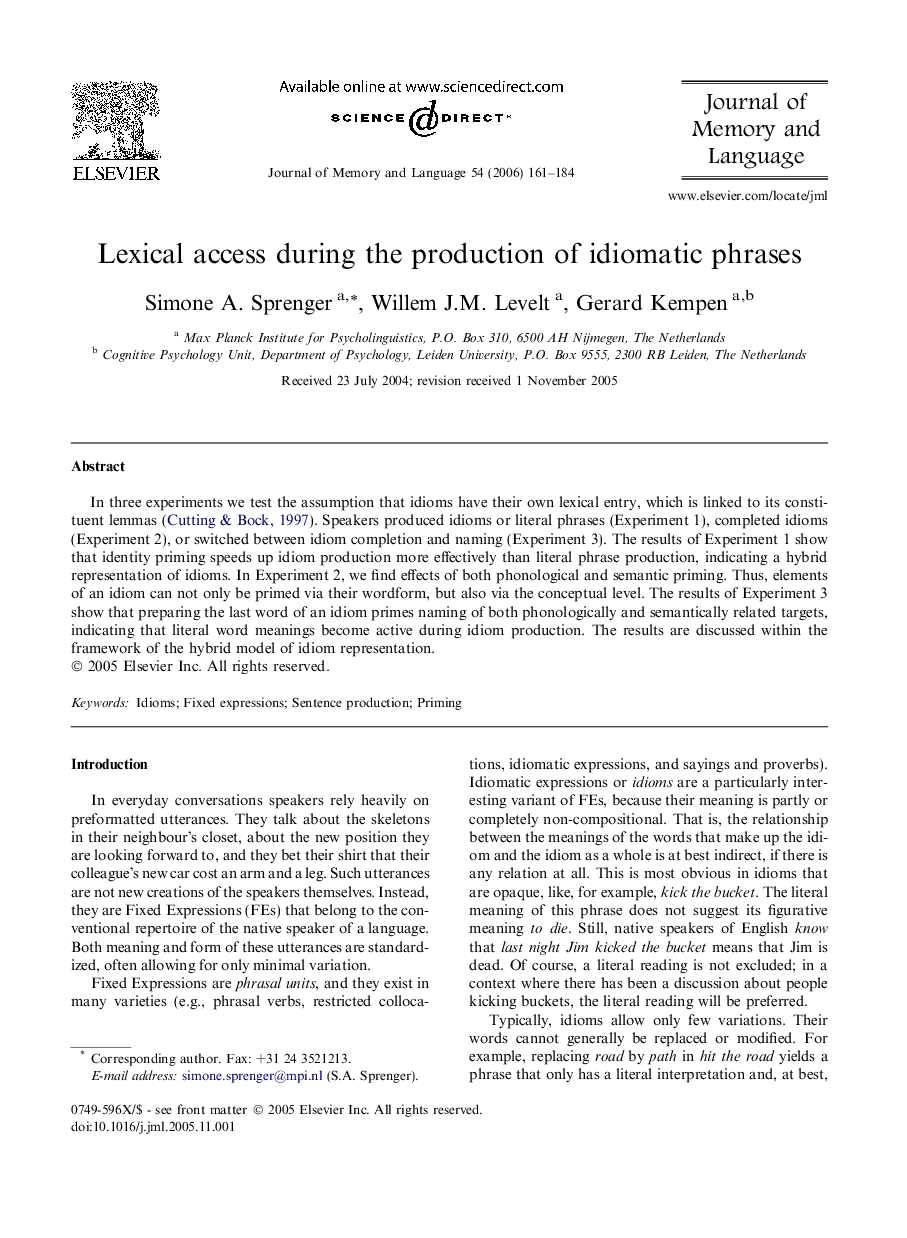| Article ID | Journal | Published Year | Pages | File Type |
|---|---|---|---|---|
| 932441 | Journal of Memory and Language | 2006 | 24 Pages |
In three experiments we test the assumption that idioms have their own lexical entry, which is linked to its constituent lemmas (Cutting & Bock, 1997). Speakers produced idioms or literal phrases (Experiment 1), completed idioms (Experiment 2), or switched between idiom completion and naming (Experiment 3). The results of Experiment 1 show that identity priming speeds up idiom production more effectively than literal phrase production, indicating a hybrid representation of idioms. In Experiment 2, we find effects of both phonological and semantic priming. Thus, elements of an idiom can not only be primed via their wordform, but also via the conceptual level. The results of Experiment 3 show that preparing the last word of an idiom primes naming of both phonologically and semantically related targets, indicating that literal word meanings become active during idiom production. The results are discussed within the framework of the hybrid model of idiom representation.
